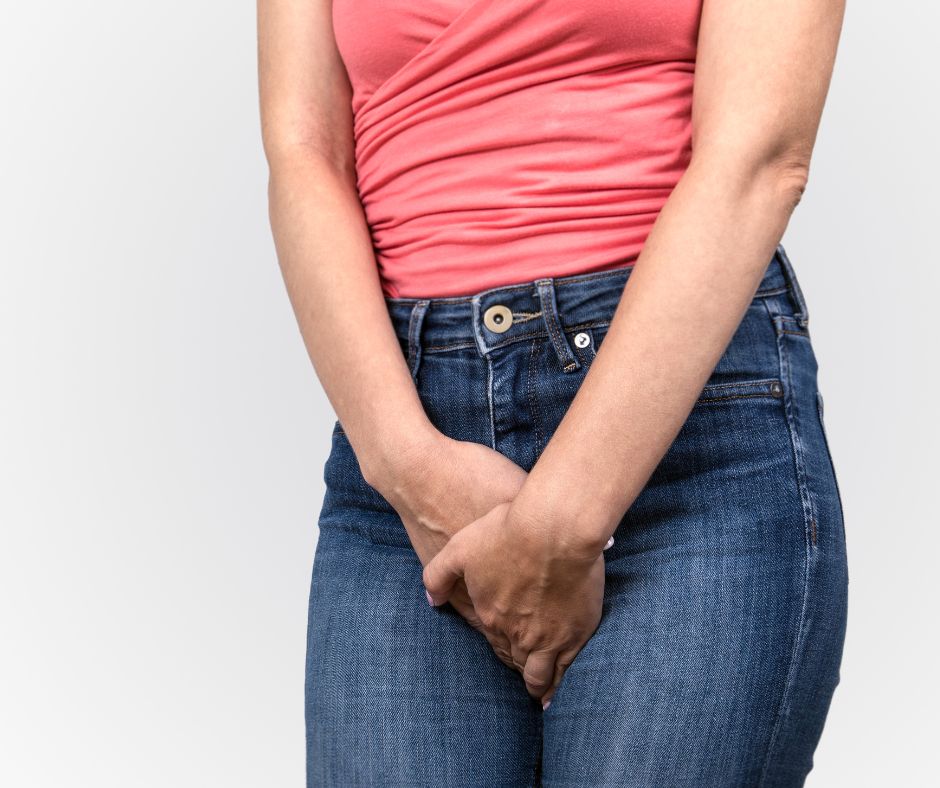We’ve all felt the stress of a hectic holiday season. From busy schedules to complex family gatherings (you sat Uncle Joe where?) holiday stress is enough to have you pulling your hair out. But what about when stress puts a burden on your bladder? Can you blame that sneaky leaking on your brain, or is it a bigger problem?
Despite the name and its deep emotional toil, Stress Urinary Incontinence (SUI) isn’t directly related to psychological stress. It refers to a physical condition where pressure on the bladder causes an involuntary leakage of urine. This kind of “stress” is more about the physical strain on the pelvic floor muscles and the bladder, and less about your tough to-do list or draining family dynamic (but hey – we won’t tell.)
If stress incontinence is dampening your holiday spirit, let’s unwrap the mystery around this common problem so you can get back to soaking in that festive holiday cheer.
What is Stress Incontinence?
SUI is a urological condition that occurs when certain physical movements – such as sneezing, laughing, coughing, or lifting that heavy Christmas turkey – puts pressure (stress) on the bladder, causing urine to leak from the urethra. It is the most common form of urinary incontinence in women. Stress incontinence is different than an overactive bladder, which causes a sudden and frequent urge to urinate.
What Causes Stress Incontinence?
A number of factors contribute to stress incontinence. Activities like laughing, coughing, or exercising naturally put greater abdominal pressure on the bladder, which causes involuntary leaking. SUI is commonly caused by weak or damaged muscles in the pelvic floor, which are then unable to support the bladder properly and prevent it from descending during periods of intense activity. SUI can also be caused by a weakened urethral sphincter, the group of muscles that control the flow of urine in and out of the urethral tube.
Who is at Risk?
Stress Incontinence is much more common in women, affecting 1 in 3 women at some point during their lives. Factors that increase your risk for SUI include:
- Increasing age
- Pregnancy
- Childbirth
- Menopause
- Previous pelvic surgery
- Obesity
- Underlying conditions that cause chronic coughing or straining
Although rare, men can experience SUI, especially after prostate surgery or treatment for prostate cancer.
Treatments for Stress Incontinence
Stress Incontinence can’t be cured, but there are treatments that can strengthen those weakened muscles and give you greater control over your bladder. Common treatments include:
- Kegel Exercises: Like a mini workout for your pelvic floor, Kegel exercises can strengthen these muscles to provide stronger bladder control.
- Lifestyle Modifications: Small changes can make a big difference. Reducing caffeine and alcohol, maintaining a healthy weight, and not smoking can all help. Treating conditions that cause chronic coughing or constipation is also beneficial to your bladder.
- Scheduled Bathroom Breaks: Regularly emptying your bladder can reduce the chances of leaks.
- Medical Devices and Continence Products. Options like pessaries, absorbent pads, intermittent catheters, and urethral inserts can help manage severe or stubborn cases of SUI.
- Surgical Solutions: In more severe cases, surgical options like inserting a bladder sling or injectable bulking agents can provide a long-term solution.
Understanding stress incontinence is the first step towards managing it effectively. A solid support system both in and out of your bladder is the key to taking control of your life (and your bathroom burdens.) Our urology supply program can help you manage urinary incontinence with quality intermittent catheters that completely empty your bladder with comfort and convenience. Visit us online to learn more about our options and talk to our expert team.

